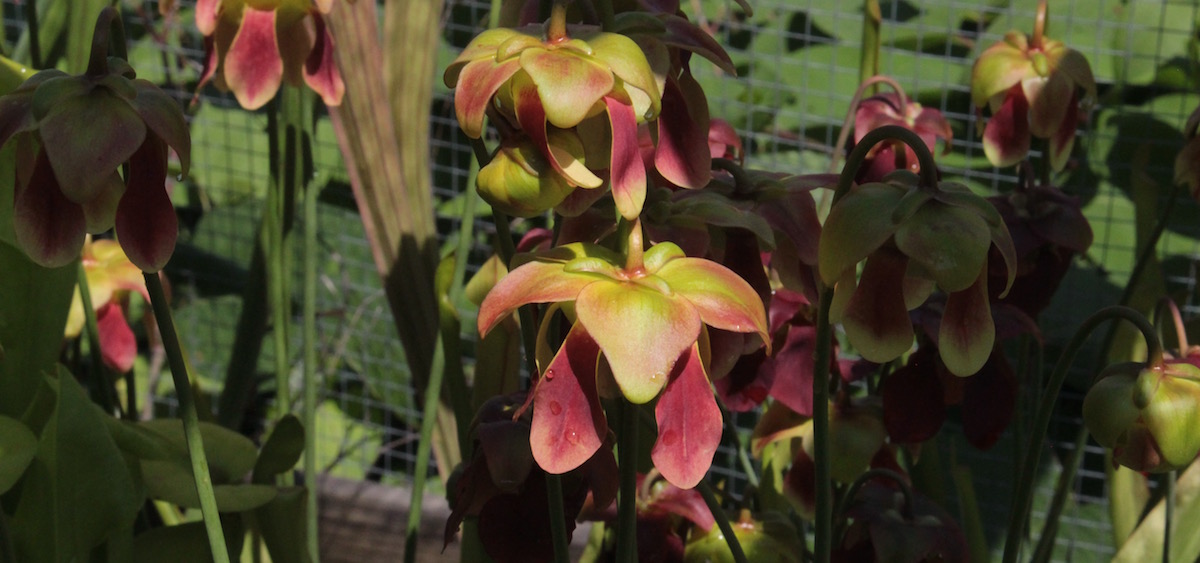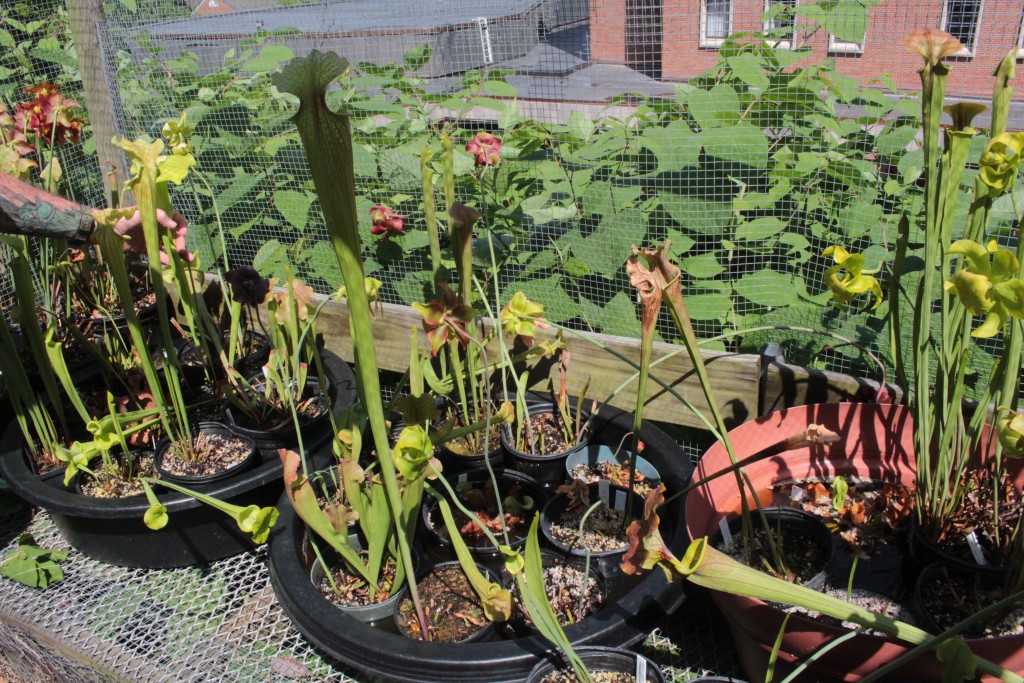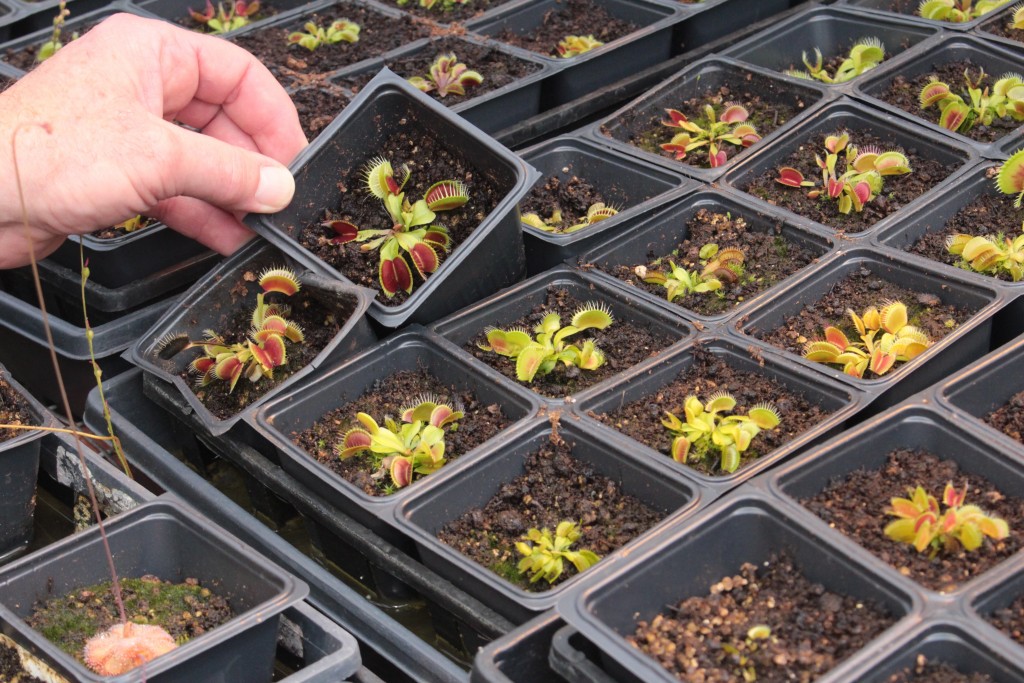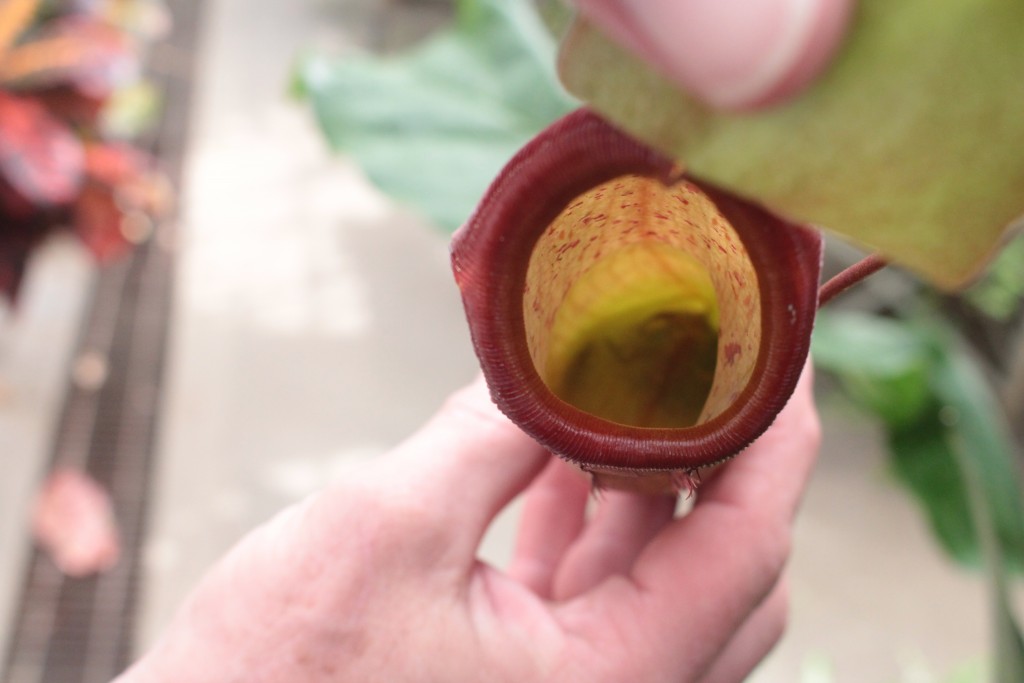Culture

‘Plants Behaving Badly’ Back on WOUB-HD May 10
By: Emily Votaw
Posted on:
Ohio University greenhouse manager Harold Blazier handles the green and crimson speckled, fleshy body of a pitcher plant’s signature pitfall trap on a humid afternoon in early May with a precise gentleness.
He points to a bobbing pool of liquid visible through the thin plant membrane walls.
“That’s where they catch their prey,” he says, pointing at the bobbing remains of tiny flies in the syrupy depths of the plant.
Pitcher plants are one of over 500 species of carnivorous plants, which are defined by their ability to derive some nutrients from trapping and consuming insects or small animals.
Plants Behaving Badly is a two-part series that will investigate carnivorous plants in it’s first installment, airing Wednesday, May 3 at 10 p.m. on WOUB-HD, WOUB Athens (20.1) and WOUC Cambridge (44.1). The second installment, which looks at orchids and their stealthy methods of attracting pollinators, will broadcast Wednesday, May 10 at 10 p.m.
The Ohio University greenhouse has a healthy collection of carnivorous plants, something that might have to do with Blazier’s lifelong passion for them.
Blazier said he fell in love with carnivorous plants the moment he saw one as a young child.

“I just saw a picture of a temperate pitcher plant – and I didn’t know what it was, but I knew that it was beautiful and that I had to grow it,” Blazier said.
Blazier sports several undulating, colorful tattoos of the plants on his arms, and his office is adorned by a number of cheeky little Venus fly trap toys.
“Obsessed’ is the word,” laughed Blazier. “When I was a little kid – many decades ago, I killed my first Venus fly trap, just like everyone else, and I started to become really intrigued with them.”
Throughout the mid-century, comic books were littered with advertisements for carnivorous plants aimed at children: “Feed It Raw Hamburger!” “Teach It To Perform Only For You!” the dulling colors of the advertisements exclaim. (Blazier has a collection of these, as well.)
“If you feed a Venus fly trap raw hamburger, you’ll kill it almost immediately,” said Blazier. “And they need pure water – rain water, bottled water – just not tap water.”
Throughout his 28 years at Ohio University (Blazier is a graduate of The Ohio State University, although he is an Athens native,) Blazier has utilized pitcher plants, butterworts, byblis, and other carnivorous plants for movement labs, to teach students about leaf specialization, hybridization and even flowers.

Blazier said there are a number of carnivorous plants that are native to Ohio, especially in the boggier areas of the state.
“People always think that these plants are tropical, but they’re not. Venus fly traps are native to the border between North and South Carolina,” said Blazier. “These plants are often winter hardy, and they do experience cool and cold temperatures and they survive them just fine.”
Elizabeth Hermsen, an Ohio University professor of environmental and plant biology who specializes in paleobotany, plant structure and plant systematics, said that carnivorous plants don’t just thrive off of insects.
“Some of these plants are modified to catch bat feces or even small mammals,” she said.

Blazier said that there have been recorded incidents of baby monkeys falling prey to carnivorous plants, as well as rats and other rodents.
“No carnivorous plant that I am aware of needs to be fed – most of ours in the greenhouse catch bugs and things, but because they photosynthesize, they don’t really need to eat like that,” said Blazier. “The bugs are like a piece of candy for us – it’s really, really nice, but they don’t need it.”
Blazier said that he often asks students to take a carnivorous plant or two home with them, and that most of them usually “get hooked” on them.
“The ones who don’t get hooked on them, well, there’s always human error – like maybe they water it once or twice with the garden hose,” said Blazier. “But they’re a lot of fun if you take care of them. Like anything, they can be demanding if you don’t understand them, but once you do, it’s like they’re not even there. Everybody needs a couple!”

